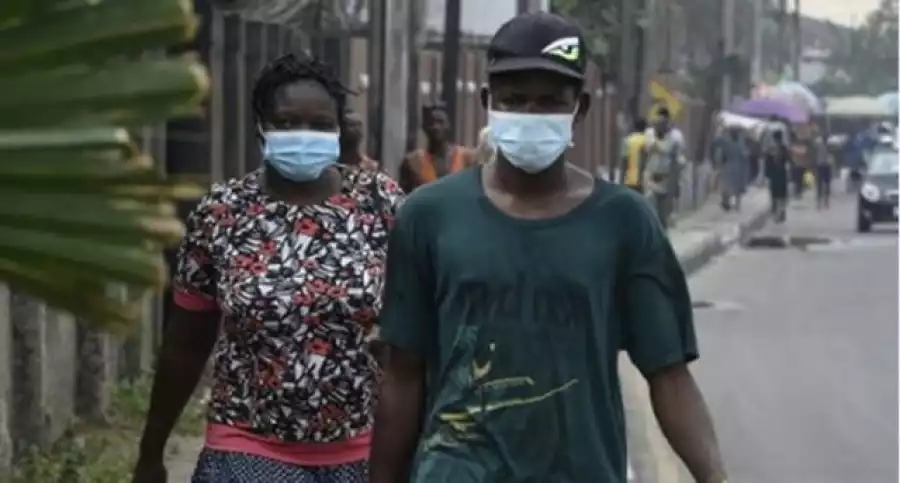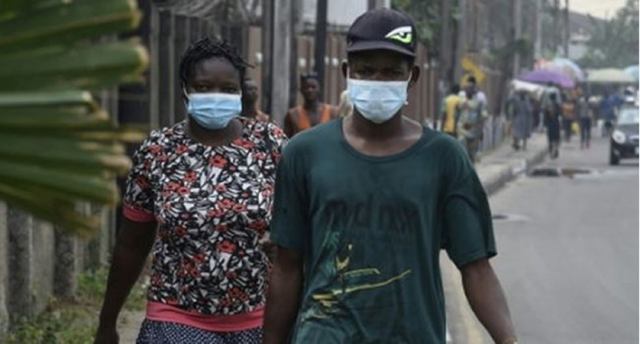COVID-19 prevention: What NCDC wants you to know about face mask

COVID-19 prevention: What NCDC wants you to know about face mask
Since the coronavirus disease (COVID-19) was first reported in Wuhan, China in December 2019, it has spread rapidly across the globe, leading to over a million confirmed cases in three months. On the 27th of February 2020, Nigeria confirmed its first case of COVID-19. Since then, the number of confirmed cases has gradually increased, with more sporadic cases reported across more states in Nigeria.

Nigeria is a densely populated country with about 200 million people across 774 Local Government Areas (LGAs) in 36 states and the Federal Capital Territory (FCT). This context and other socio-economic factors make the country particularly vulnerable for a highly transmissible virus such as SARS-CoV-2 to spread.
According to the World Health Organization (WHO), medical face masks should be worn primarily by people who show symptoms of COVID-19, health workers and people who are taking care of people with COVID-19 in close settings (at home or in a health care facility).
The Nigeria Centre for Disease Control recommends the use of face masks by members of the public, as an optional additional layer and not as a compulsory measure, in addition to physical distancing, hand and respiratory hygiene measures in Nigeria. This is not a compulsory advisory, but it is an added recommendation in addition to the above measures.
SARS-CoV-2, the virus that causes COVID-19 is most frequently transmitted from one person to another, through droplets from coughing or sneezing. The virus can also be transmitted by touching surfaces that have been infected (e.g., door handles, countertops) or more rarely, from singing or speaking loudly.
Given what is understood about this new virus, the Nigeria Centre for Disease Control has advised on the following measures to prevent transmission:
Physical distancing – i.e. people should keep a minimum distance of 2 metres from one another.
Handwashing with soap and water should be performed as frequently as possible or using an alcohol-based sanitizer where no water is available.
If someone is coughing or sneezing, they should cover their cough, using a disposable tissue and discarding in a waste bin and washing their hands or using their bent elbow.
Normal practices like greeting one another with handshakes or hugging should be avoided.
Evidence relating to the community use of masks for prevention of COVID19
Globally, there is an ongoing debate on the effectiveness of masks as a preventive measure for the coronavirus disease. The evidence in favour of the use of masks includes the possibility of asymptomatic (a person never develops symptoms) and pre-symptomatic (before a person develops signs and symptoms) transmission and emerging evidence of the ability of a mask to prevent contact with respiratory droplets.
Ecological comparisons also appear to suggest better outcomes in countries that have used masks as a general policy. Sources of concern have been that people who wear face masks may feel protected and ignore physical distancing advice. In addition,
if face masks are not worn correctly, disposed of appropriately or if people touch their faces more frequently due to adjustments of the face masks they are wearing, they run a higher risk of infecting themselves.
Increased anxiety among the public The daily real-time reporting of the COVID-19 pandemic has heightened panic and fear in people, as the numbers of cases and deaths recorded globally continue to increase. There is a lot that remains unknown about this disease.
Authorities and scientists do not yet have all the answers to the many questions being asked. The instinct for self-preservation and protection from harm and the basic need to survive has brought about a need for self-defence against this novel virus. Many people will be resorting to the use of face masks to gain some control and confidence in their ability to protect themselves (and family) from contracting the coronavirus disease.
Recommendations
In view of these, the Nigeria Centre for Disease Control offers the following advice to members of the public:
The wearing of face masks, (or equivalent) is recommended as an optional additional layer to be used in addition to other measures such as physical distancing, hand and respiratory hygiene measures in Nigeria. The primary rationale for the advice on face masks is to prevent those who are infected but asymptomatic from spreading the virus. Masks have to be properly disposed of in waste bins. Improper handling and frequently touching masks can increase the risk of infection. Improvised masks are also an option – as long as they are properly washed regularly. They can be made out of cloth or other materials.
The usage of face masks is particularly advised while attending large gatherings (where it is absolutely necessary to attend). These include but are not limited to shopping outlets, markets, shops and pharmacies among others.
Given the global shortage of personal protective equipment including medical masks, public sector resources should be preserved to procure medical masks for patients and healthcare workers who need them the most.
The wearing of face masks alone will not protect against COVID-19, but must be combined with physical distancing, handwashing, respiratory hygiene, cleaning and disinfecting frequently touched surfaces and other advice from NCDC.
Older persons (> 60) with existing medical conditions such as diabetes are particularly encouraged to wear masks as they are at higher risk of infection. It is also further advised that face masks are used by more vulnerable members of the society, citizens with ongoing respiratory problems, and those already exhibiting symptoms and awaiting testing.It is important to remember that the usage of face masks alone cannot be relied upon to avoid the COVID-19 virus; physical distancing, hand and respiratory hygiene measures are necessary for protection from the virus. ABOUT NCDC
The Nigeria Centre for Disease Control (NCDC) is the government agency with the mandate to lead the prevention, detection, and control of communicable diseases. Its functions are to prevent, detect, investigate and control communicable diseases of national and international public health importance.
Contact: NCDC Toll-Free Number: 0800 9700 0010 SMS: 08099555577 WhatsApp: 07087110839 Twitter/Facebook: @NCDCgov Email: info@ncdc.gov.ng







![Painted Skin Love is Destroyed (2024) [Chinese]](https://www.memesng.com/r/storage.waploaded.com/images/1b4c9d67244e4b01097f586f7b939fd6.jpg?w=50&ulb=true&ssl=1)

![Love (2023) [Kannada]](https://www.memesng.com/r/storage.waploaded.com/images/f715671bf0c01c77b24daf77c3606e92.jpg?w=50&ulb=true&ssl=1)
![Lineman (2024) [Telugu]](https://www.memesng.com/r/storage.waploaded.com/images/9e1c4c2b55530679c2e4a228c24f9d77.jpg?w=50&ulb=true&ssl=1)
![Avatara Purusha 2 (2024) [Kannada]](https://www.memesng.com/r/storage.waploaded.com/images/420770645f1a1770206809f8e7877f8a.jpg?w=50&ulb=true&ssl=1)















{{comment.anon_name ?? comment.full_name}}
{{timeAgo(comment.date_added)}}
{{comment.body}}
{{subComment.anon_name ?? subComment.full_name}}
{{timeAgo(subComment.date_added)}}
{{subComment.body}}